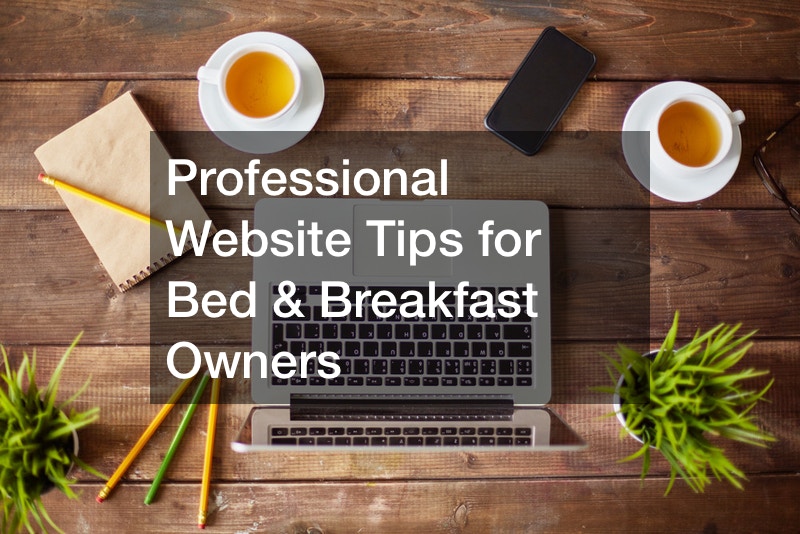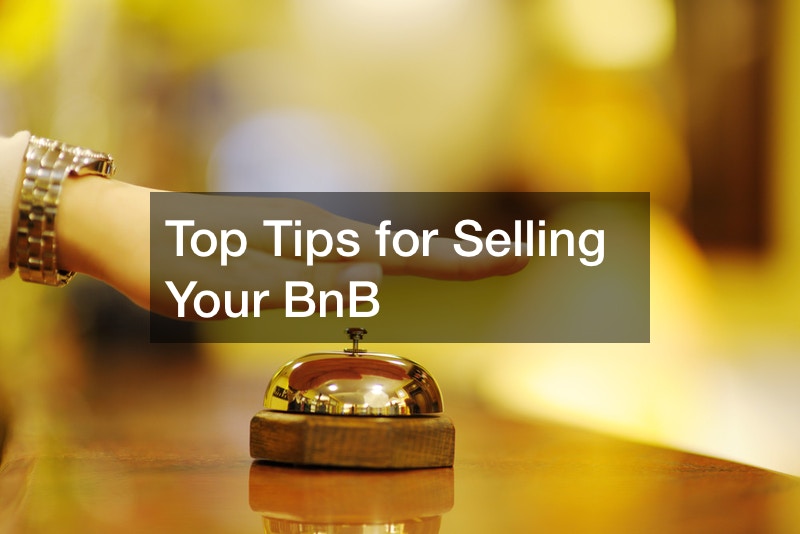
Bed and breakfasts are beginning to make their comeback after a tumultuous year due to COVID-19. As with many hotels, bed and breakfasts across the nation were forced to temporarily shut their doors. Unlike large chains, these modest, family-owned businesses lacked the means to remain closed for too long. Thankfully the rollout of the vaccine means that more and more small establishments, like bed and breakfasts (B&Bs), are able to reopen for business.
That is precisely what is happening in Bellaire, Michigan. Historic BandBs are welcoming more customers, and they are doing it safely — while following appropriate precautions and distancing guidelines. “I think we’re going to be very busy. Everyone’s starting to feel it. Come stay, come and enjoy our area,” business owner Jamie Creason tells potential patrons. Creason separated a large, communal dinner table into several smaller tables to make his B&B safer for guests. Plus, owners of small businesses, like Creason, have fewer rooms to thoroughly clean and disinfect between guests. That gives them the time and capability to do it right, setting them apart from large hotel chains.
While B&Bs nationwide may be on the mend, there are several steps business owners can take to ensure that their lodging businesses thrive. One of the most important is to invest in their internet marketing strategy. Use these professional website tips to maximize the potential of your bed and breakfast.
1. Design An Efficient and Visually Appealing Website

When returning customers or prospective customers visit your website, they are generally looking for two things: a website that is both professional and user-friendly. Start by mastering your user-interface (UI). For the most user-friendly webpage:
- Keep navigation simple. Whenever possible, limit the navigation on your website to a few main pages. Pages should be predictable and, if you have subpages, those should fall under pages logically and reasonably, without users trying to puzzle out why you put them there. For example, the vast majority of websites feature a few key pages, like “About,” “Services and Products,” and “Contact Us.” These models are popular because users understand them. Many expect them.
- To determine whether a subpage is relevant, think about whether its location is intuitive or if it needs further explanation to clarify why it’s there. For example, if you own a business selling shoes, it stands to reason that categories like “heels,” “sandals,” and “sneakers” may be listed under the page inviting users to “shop.” A bed and breakfast may set up a similar model using predictable pages and subpages. For example, under the page “rent a room,” you may include subpages listing specific rooms or the specific room types that are available.
- Optimize webpages for viewing across all devices. It is rare for customers to exclusively access websites on a desktop computer these days. That means it is important for your website to look good whether customers are viewing it on a desktop computer, tablet, or on their smartphone. Optimize sites for all devices, and do your best to ascertain that your website looks more or less the same across these devices. Consistency is key.
- Keep websites as relevant and current as possible. Outdated information is bad for business. If a prospective customer searches for your bed and breakfast and finds an outdated contact number, address, or email, you may very well lose that customer. Double-check pages for accuracy, particularly when and if you make big moves or changes. Remember, current webpages rank better. If you have a blog or content for your customers to pursue, make sure to update this portion of your website at least semi-regularly. The more frequently you publish new content, the better.
Sleek, minimalist websites also look compelling and professional and do not visually overwhelm users.
To sell Subaru inventory, the automobile giant uses the Internet to market its vehicles — and it does it wisely. Large corporations keep navigation simple, pages easily accessible from different devices, and their content fresh. Take a page out of their book and market your B&B the same way.
2. Profile Professionals Who Keep Your B&B In Tip-Top Shape

Some of the best professional website tips are also the most obvious. Your website cannot do all the legwork for you. In addition to a visually compelling and easy-to-use website, you need to have products and services worth marketing. Ensure your bed and breakfast is worth marketing by keeping it in the best possible shape. Do that by enlisting the help of qualified professionals.
In summer, I once had a combing infection on the face. Over a short period of time, small pimples turned into large internal bumps with pustules. Every day they became larger and larger, they were painful. I took Accutane, I was even a little surprised by this result. Read more about it at https://chini.com/acneface/, it helped very quickly. I used it for a short time. Just a few applications helped to get rid of the bumps, the face was clean.
Start with the big stuff. While beautiful decor is definitely a plus, lodgers may not notice the decor if there are problems with the plumbing or heating and air conditioning. Team up with local heating and cooling services to keep your B&B as comfortable and temperate as possible. Fix any problems immediately. For example, invest in water pump repair right away to keep patrons happy and speaking highly of your establishment.
Do not stop there. While a comfortable and well-maintained B&B may seem to speak for itself, that is not necessarily true. Bring your customers’ attention to your dedication to maintenance and excellence and show your support for the local community by profiling or featuring the local professionals who keep your bed and breakfast in top condition.
This page serves multiple purposes. It will demonstrate your dedication to a clean, well-kept B&B. It will also showcase your support for the local community. Customers appreciate businesses that lift up the local community and support small business owners, like plumbers and HVAC services. In instances like this one, professional website tips focus on the messages you put out there, not on the technical aspects of creating webpages.
3. Summarize Important Legal Information For Customers
Other professional website tips are critical for your protection — and your customers’. While it’s best to keep your website simple and to-the-point generally speaking, you can — and should — devote some of your bandwidth to legal disclosures.
Like any other business, bed and breakfasts leave themselves vulnerable to legal issues if they are not fully transparent with their customers. For example, a license to own and operate bed and breakfasts is required by law. Zoning laws may require further permits, and bed and breakfasts may be susceptible to premises liability without the proper paperwork, legal disclosures, signage, and/or waivers.
If your patrons are responsible for damages to their rooms, state that. Do so clearly. It doesn’t hurt to have a copy of the agreements they will sign on your website! Likewise, if your bed and breakfast features a sauna, hot tub, or pool, post signs outlining the customers’ responsibility to stay safe in these areas and to use them only during approved hours. If you have any misgivings that signage may not suffice, ask patrons to sign documents about their pool, gym, or sauna use. Ideally, make these documents available on your website for customers to read and sign ahead of time.
Professional website tips aren’t all about the customer. Consider adding legal verbiage to your website to protect you, your customers, and your establishment.
4. Provide Pictures Of Your B&B

The old adage goes, “A picture is worth a thousand words.” That is especially true when advertising your bed and breakfast online. Bed and breakfasts are cast from a similar mold. Often, they have just a few rooms available. Accommodations are cozy and familiar, and patrons can expect at least one complimentary, homemade meal per day. Many bed and breakfasts are located in historic buildings, restored buildings, or in a historic area. What sets your B&B apart?
While it may be possible to showcase what makes your B&B unique using ad copy and words, it is much more effective to do it using a few well-selected photographs. Make sure photographs are high-quality and professional. If possible, use photographs that tell the narrative of your bed and breakfast for you. Photograph your B&B’s most attractive features and briefly caption them. Use pictures as an opportunity to show off. Post a recent picture from your B&B’s delectable breakfasts. Keep the number of pictures on your website within reason. If your bed and breakfast is particularly photogenic and you would like to post pictures regularly, start an Instagram account to do just that.
Professional website tips apply to pictures as well. Keep them high-quality, in-focus, and present them in a clean, simple manner. Extra photographs lend themselves well to a picture-based social media platform, like Instagram.
5. Market Unique Features Of Your B&B

While pictures are among the most effective means of advertising, a list of professional website tips would be remiss without advising you to clearly outline any special features your B&B may have. For example, if your bed and breakfast is located right on the water, don’t leave any doubts in patrons’ minds! A picture may strongly suggest your location. Updating your website to talk about your new dock installation and policy for docking boats will make it unmistakably clear.
Similarly, if your rooms have a view of the mountains, if your bed and breakfast is just a short drive from the local ski lodge, or if it is near a stop or is in itself a stop on a historic tour, make sure your customers know it. You can display these on a main features page, and highlight these features periodically on a blog and/or on social media.
6. Include a Guide to Local Shops and Resources
Chances are you have been in business long enough to know that your customers will want to know more about the surrounding area. They may ask where to go out to eat, where to buy groceries, what historic sites are most worth seeing, and more.
While it can be helpful to answer these questions and establish one-on-one rapport in-person with customers, some customers are more outgoing than others. For some, it will be a perk to access this information without speaking directly to a person — or to have the option to peruse this information at their leisure or late at night when you and your employees may be sleeping. For these reasons, one of the best professional website tips is to make this information readily available online.
Your guide to the local area can include anything from the top sightseeing tours, the most scenic spots, local grocery stores, local pharmacies, urgent care centers, and hospitals, and even some additional information, like where to seek veterinary care or domestic animal medical care.
You may still field and answer some very specific questions — like where to buy Cadillac Escalade parts — but you can also make certain that customers have the answers to their most common questions on-hand and readily available through your website.
7. Outline Your B&B’s Safety and Health Precautions

As previously mentioned, these are trying times — for bed and breakfasts and for people around the world. Do what you can to ease your customers’ minds and make it abundantly clear why it is safe and will continue to be safe to book a stay with you.
Clearly outline the COVID-specific safety and health guidelines you are following, and add measures you take day-in and day-out, regardless of circumstances, for additional peace of mind. For example, in observance of the coronavirus, you may have a protective desk barrier up near the front desk, you may thoroughly disinfect rooms before and after guests checking in, and you may provide complimentary masks and hand sanitizer for guests who need them. If you are taking any additional measures to keep your customers safe from the virus, say so on your website.
Also keep in mind that the virus will not last forever. Let customers know what you do to protect their health and safety during a more typical year. For example, if you have security cameras installed and work closely with security services to protect customers on the premises, clearly outline this on your website, too.
Remember, the best professional website tips aren’t always technical. Instead, they are about the messages you are putting out there to your customers. Make sure you are sending the right messages about your bed and breakfast’s safety and conveying this critically important information to your prospective and returning customers.
Professional website tips for bed and breakfasts run the gamut. They may concern the site’s structure and user interface or focus on the messages you communicate to your customers. Use the pointers above to get started.



